Ottawa Senators general manager Pierre Dorion is again under the microscope for his handling of a top prospect. The team announced on Sep 29, 2023, that they had placed defenceman Lassi Thomson on waivers to assign him to the American Hockey League’s (AHL) Belleville Senators. However, the 2019 first-round pick didn’t last long and was scooped up by the Anaheim Ducks on Oct 1.
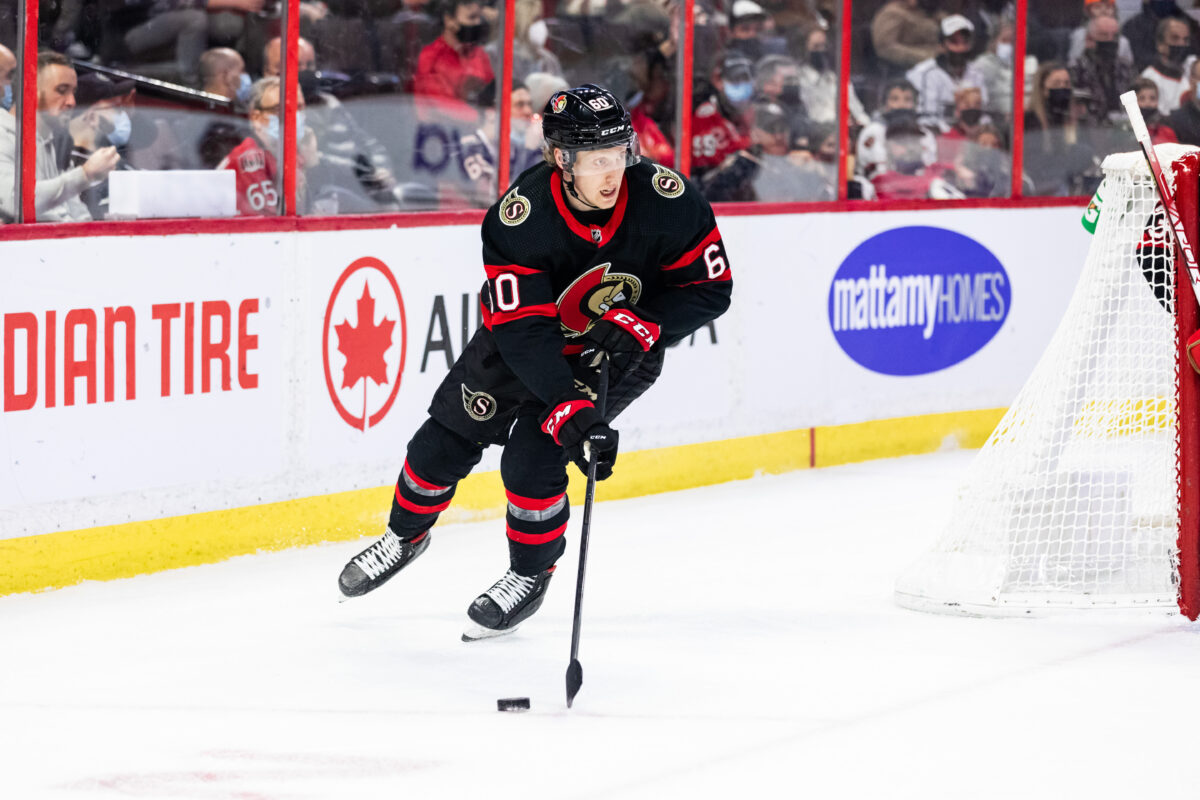
Fans have been split on the move. On one hand, Thomson wasn’t good enough to make the main roster and losing him won’t hurt the team in the long run. The Senators have their core, and five years after he was drafted, he had yet to establish himself as part of that group. He’s merely a casualty of the team becoming more competitive.
But, on the other, it’s hard to miss the pattern emerging from Dorion’s handling of the team’s resources during his tenure with the club. Yes, losing Thomson to waivers isn’t a big deal on its own, but the bigger picture reveals this as another example of a management group that can’t get out of its own way to build a championship-calibre team.
Senators Haven’t Drafted Well
Drafting is the backbone of a rebuilding NHL team. It’s the most effective way to add top-tier talent who will remain with the franchise for as long as possible. The Senators’ 2020 Draft class is a big reason they are now looking at the playoffs, thanks to the additions of Tim Stutzle, Jake Sanderson, Ridly Greig, Roby Jarventie, and Tyler Kleven in the first two rounds. But one draft does not finish a rebuild, and Dorion’s drafting record suggests that 2020 may be more of an outlier than the norm.
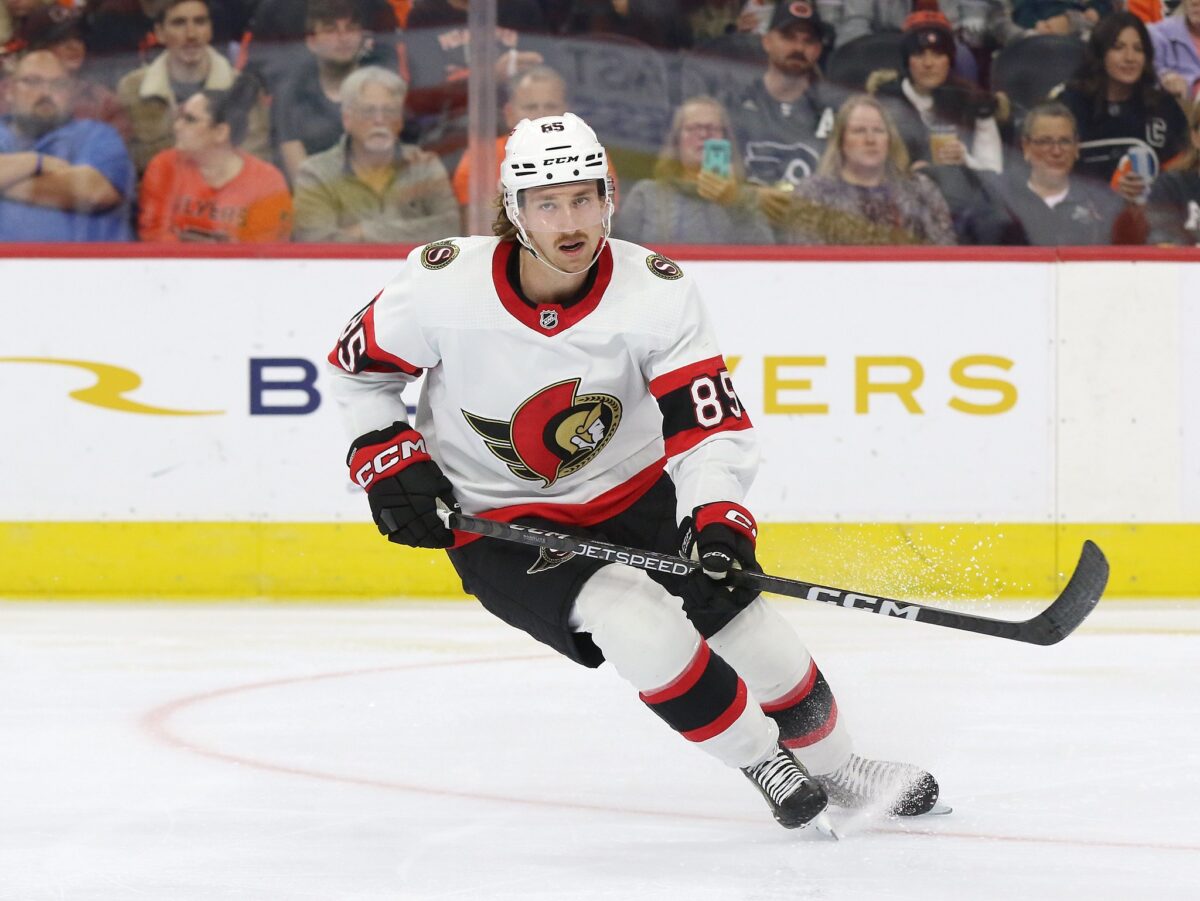
Take, for example, the 2019 Draft class. The Senators should have had the fourth overall pick, but they sent that to the Colorado Avalanche when they acquired Matt Duchene in 2017. Acquiring one of the top trade targets was practically guaranteed to turn the Senators into a competitor, but in reality, everything imploded, forcing management to trade the face of the franchise, Erik Karlsson, and start to recoup assets as quickly as possible. That involved trading Duchene again, sending him to the Columbus Blue Jackets for, most notably, the 19th overall pick in the 2019 Draft, which should have been an important part of the rebuild.
However, when the Senators stepped up to the podium, they selected a prospect that Bob McKenzie had ranked 30th overall and others thought could have fallen into the second round. But he was one of the best right-handed defencemen remaining after Moritz Seider and Victor Soderstrom, and that’s what the Senators needed in their system, so they prioritized need over ability. It’s not that Thomson wasn’t skilled; he possessed incredible speed and a blistering shot, but some defensive gaps made him a purely offensive defenceman, which limited his potential to a middle-pairing defender.
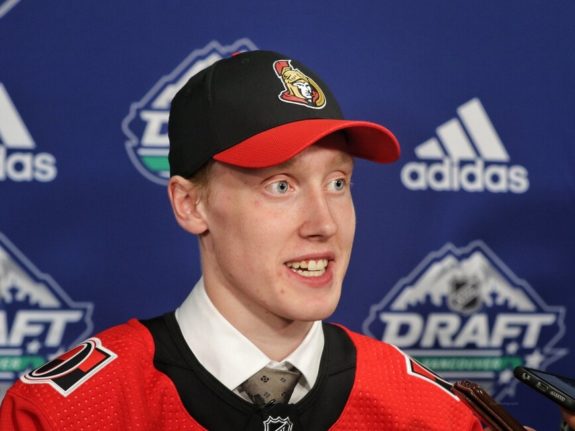
Unfortunately, Thomson never panned out, which resulted in his recent waiver claim. It’s also unlikely that the Senators will regret losing him since few waiver claims go on to become much more than replacement-level players. That’s just how drafting goes sometimes. Except, in 2018, the Senators again prioritized need over skill and reached for right-handed defenceman Jacob Bernard-Docker, who was just placed on waivers. In 2017, they prioritized need and reached for Shane Bowers, who was described as a safe pick but was dumped to the Avalanche in the first Duchene trade. Missing on one first-round pick is expected; missing on three picks in a row is a problem.
The Senators’ poor drafting record goes deeper, too. Over the last decade, the team has missed on most of their first and second-round picks, and from 2015-2019, Ottawa selected just two players – Brady Tkachuk and Thomas Chabot – who helped with the rebuild. It hasn’t improved after 2020, either, with the 2021 Draft class looking like one of the worst in franchise history, and the 2022 and 2023 Draft classes combining for just one pick in the first two rounds. For a team that hasn’t made the playoffs since 2017, this is not a good sign, especially when those picks are given away for nothing.
Too Much Money for the Wrong Players
Another reason why Thomson was cut was that there just wasn’t enough money to keep him around. At the time of writing, the Senators have just over $120,000 in projected cap space with less than a week before the 2023-24 season. With their most recent waiver placements, that number could go up to $1.7 million. The only non-playoff team from last season with less cap room than Ottawa is the Montreal Canadiens, but that’s likely to be short-lived as the team is expected to place Carey Price on long-term injured reserve before the start of the season.
Related: Senators Continue to Mismanage Assets With Latest Waivers
The Senators’ cap issues have also prevented them from signing Shane Pinto, who should have been mentioned alongside Tkachuk and Chabot as a core member earlier, but there’s now a chance that the team could lose him, too. After scoring 20 goals as a rookie, the Senators reportedly offered Pinto a one-year, $1 million contract. While that’s all the money they could offer him, and they likely promised to give him a substantial raise next season, it’s a disrespectful offer to a player who can get his team much closer to the playoffs.
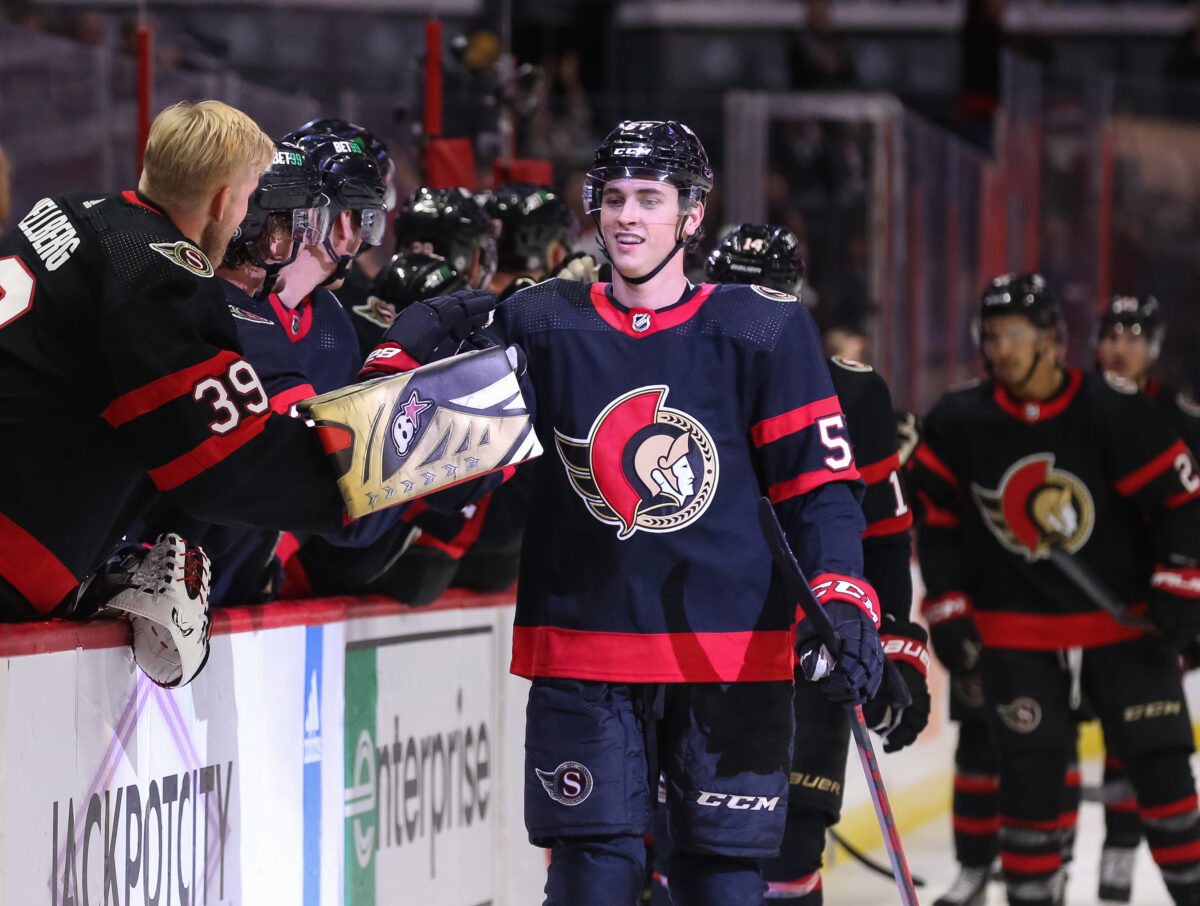
But the problem is more than just there’s no money for Pinto, but rather that the money that should have been set aside for young supporting players was given to role players. Travis Hamonic was re-signed to a two-year, $1.1 million deal. Zach MacEwen was signed to a league minimum deal. Vladimir Tarasenko inked a one-year, $5 million contract. Artem Zub signed for $4.6 million. Mathieu Joseph was signed for $2.95 million. On their own, none of these deals are egregious, but together, it’s obvious that a lot of money has been committed to players outside the main core. Are fans to believe that none of these players could be replaced with significantly cheaper versions?
Even the $7.95 million contract that Josh Norris, who is arguably one of the team’s most important centers, signed has created a problem, especially since he hasn’t played much since signing the deal in July 2022. In some regards, it’s reminiscent of the contract offered to Colin White in 2019, which was subsequently bought out in 2022 after he was unable to repeat his rookie totals. It’s also worth mentioning that both contracts were signed and terminated by Dorion.
Dorion Forced to Fix His Own Mistakes
These examples are just the tip of the iceberg. For several years, Dorion has struggled to fill his lineup with capable veterans, and when they fail to click with the team, he is forced to move them. Alex DeBrincat is one of the most recent and worst examples, but he’s far from the only one.
Since 2016-17, the Senators have added Derek Stepan, Erik Gudbranson, Evgenii Dadonov, Anders Nilsson, Matt Murray, Zach Sanford, Josh Brown, and Ryan Dzingel’s second go-around with the franchise, but none of them played more than 72 games in Ottawa before being traded. One of the worst deals was given to Michael Del Zotto, who played just 26 games before he was bought out in 2022 and whose contract is still on the books.
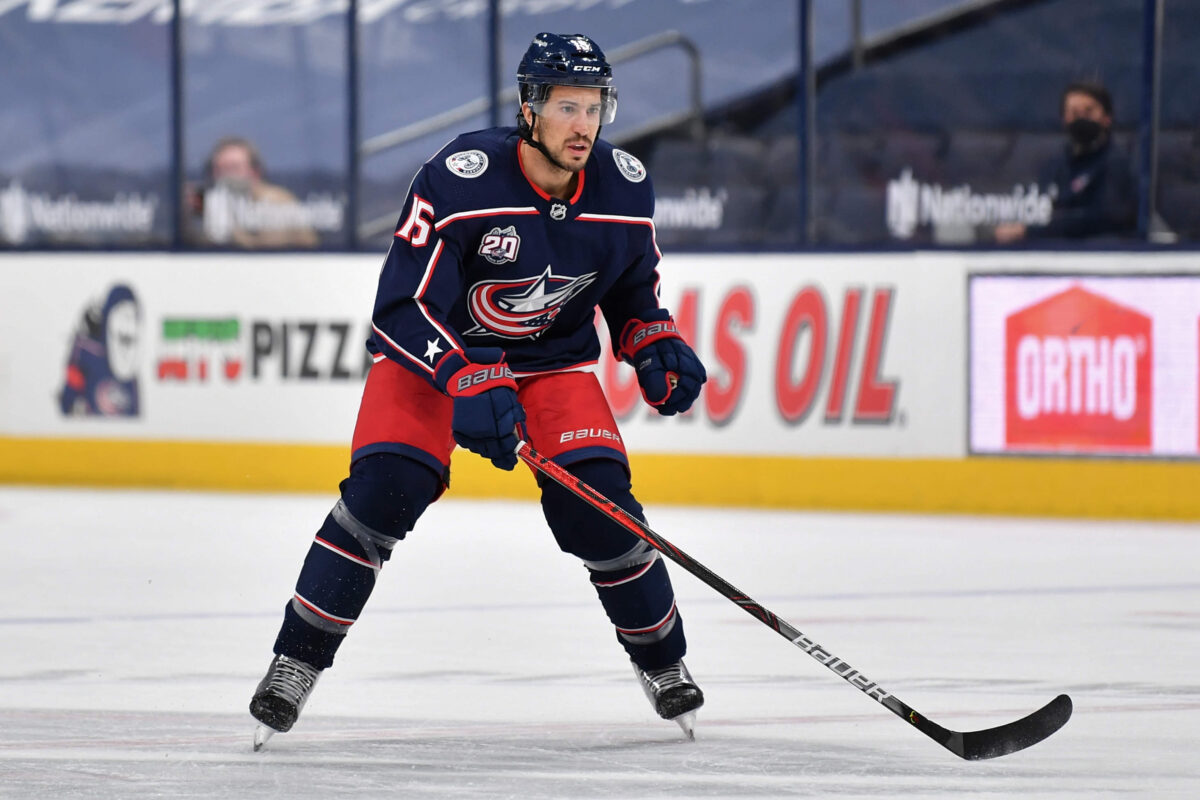
Combined with Dorion’s poor draft record, it makes more sense that he’s had to add underperforming veterans to fill holes; the players who were supposed to be there haven’t panned out. It’s become a cycle of failure due to a misunderstanding of the team’s needs. Recently, reports surfaced that Tyler Boucher, the team’s 10th overall pick in 2021, was reportedly attached to a deal with the Philadelphia Flyers, but the Senators balked at trading him. He was a perfect asset to move to free up space for Pinto, as he has shown little progress at becoming a depth forward and spent most of his time in junior injured or suspended. Yet, he remains a Senator while Pinto sits and waits for a reasonable offer.
It’s also been reported that Dorion is confident he can make a trade whenever he needs to, but can fans trust him not to misjudge the talent he decides to send away? On the Oct. 2 episode of the 32 Thoughts Podcast, Jeff Marek mentioned that Thomson was offered as a sweetener on a cap dump, but no one took the bait. Those two statements don’t line up, juxtaposing overconfidence with ineptitude, but they encompass Dorion’s trading ability well.
This is Dorion’s Resume
Dorion was a big part of bringing in Tkachuk, Stutzle, Sanderson, and Drake Batherson, all of whom factor into the team’s long-term future. But when it comes to the players outside that core group, he has continually failed to make the most of the opportunities given to him. Wasted draft picks, lopsided trades, and poor cap management have created a problem that will take some time to sort out, and although it likely won’t have much of an impact on this season, it will certainly stretch into the new general manager’s tenure.
When you take all these problems together, it’s hard to justify why Dorion should stay on as GM under new owner Michael Andlauer. The writing is on the wall, too; after saying that Dorion would be held accountable for his hires and on-ice product, he announced the arrival of Steve Staios as President of Hockey Operations, meaning Dorion’s every move will be under much more scrutiny, especially given the GM’s background in scouting. Dorion knows he won’t be around for much longer, and he’ll certainly try to create a competitive team. After all, that’s his resume, according to Elliott Friedman on 32 Thoughts. But if his resume includes two wasted first-round picks, that’s not a good look for future jobs.
